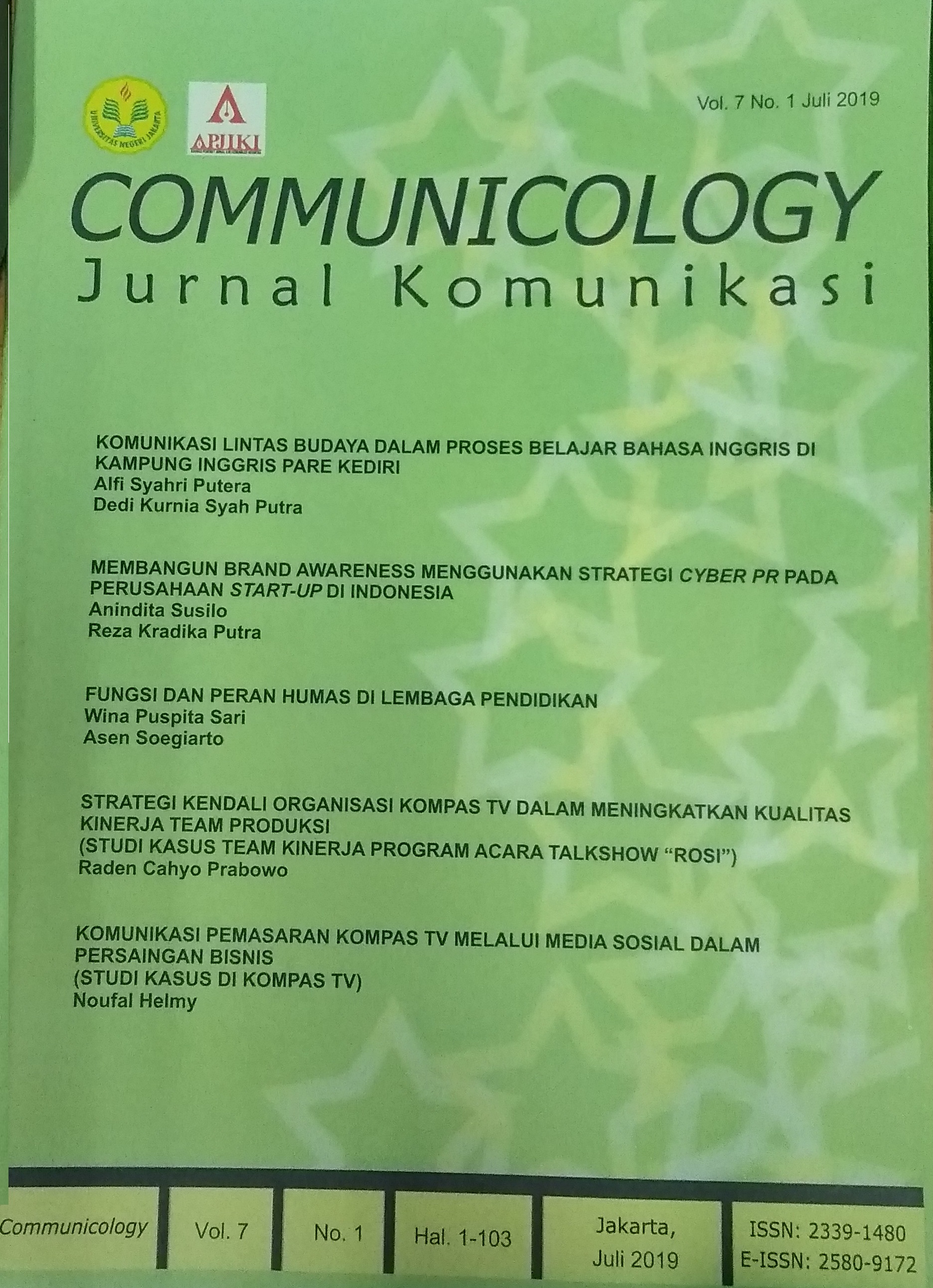KOMUNIKASI PEMASARAN KOMPASTV MELALUI MEDIA SOSIAL DALAM PERSAINGAN BISNIS
(Studi Kasus di KOMPASTV)
DOI:
https://doi.org/10.21009/COMMUNICOLOGY.14.05Keywords:
marketing communication, social media, promotion, businessAbstract
ABSTRACT The large number of television stations present in Indonesia gives its own color in the world of Indonesian broadcasting. KompasTV realizes that the rapid advances in information technology have an impact on the behavior of Indonesian people, especially for KompasTV glass screen lovers. Answering this challenge, KompasTV is present to greet loyal viewers in digital form on various social media. The purpose of this study was to find out how KompasTV marketing communications, using social media in business competition. This study uses new media theory and communication mix theory. The paradigm used is post-positivism with qualitative approaches and case study research methods. The research data collection technique was obtained using interview and observation techniques to the subjects of the KompasTV digital division research, and strengthened by KompasTV social media users. The research results obtained are that KompasTV marketing communication using social media (media mix) can expand its broadcast network, audiences on social media have similarities with KompasTV's target audience on social media, and can provide information to KompasTV social media users in the form of advertising promotions, content news, as well as programs that attract the attention and interest of the audience. In addition, using KompasTV social media wants to invite audiences on social media to switch to watching news content and programs offered by KompasTV both through live streaming and on the KompasTV television screen.
Keywords: Marketing Communication, Social Media, Promotion, Business.
Downloads
Published
How to Cite
Issue
Section
License
Authors who publish with this Journal agree to the following terms:
- Author retain copyright and grant the journal right of first publication with the work simultaneously licensed under a creative commons attribution licensethat allow others to share the work within an acknowledgement of the work’s authorship and initial publication of this journal.
- Authors are able to enter into separate, additional contractual arrangementfor the non-exclusive distribution of the journal’s published version of the work (e.g. acknowledgement of its initial publication in this journal).
- Authors are permitted and encouraged to post their work online(e.g. in institutional repositories or on their websites) prior to and during the submission process, as it can lead to productive exchanges, as well as earlier and greater citation of published works.
Users/public use of this website will be licensed to CC BY





